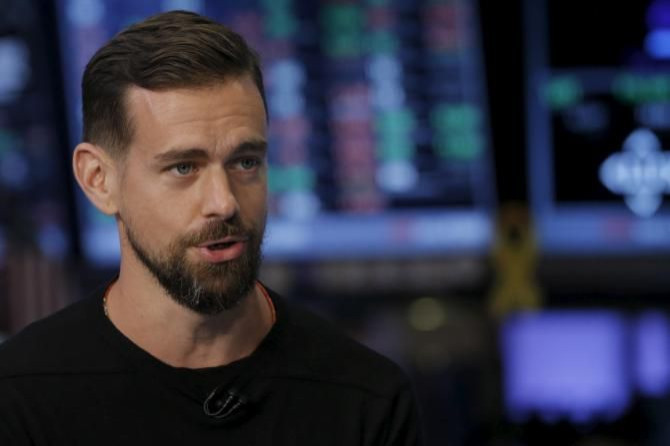Jack Dorsey Admits To Twitter’s Diversity Problem To Room Of Black Engineers

BOSTON — One of Twitter's biggest problems beyond user growth was put into the spotlight Friday. Before a room of hundreds of black engineers, Twitter CEO Jack Dorsey said his company knows there is a diversity problem and is committed to overcoming it.
“We’re not going to be creative, relevant [without diversity]. … There’s saying it, but there’s actual tangible investment,” Dorsey said during his keynote presentation at the 42nd annual convention for the National Society of Black Engineers (NSBE).
For the last year, Twitter has been scrutinized for its inability to change its representation of employees from diverse backgrounds. In August Twitter reported its U.S. workforce included just 2 percent African-Americans, and Hispanics accounted for only 4 percent of the workforce. African-American representation in leadership had dropped from 2 percent to zero.
But it wasn’t just damning numbers. Former engineering manager Leslie Miley was a part of Twitter’s layoffs of 336 employees in October and opted out of his severance package, which would have included a nondisclosure agreement, so he could voice his mind on Twitter and its diversity problem.
“This is why Twitter is stuck at 320 million users,” Miley told International Business Times before later publishing a blog on Medium. “It doesn’t have people making product decisions who understand the use case of the most prolific communities on Twitter.”
Three months later, Twitter revealed it still was stuck on 320 million users. But something had changed: There’s public acknowledgment of its failure and need to change. On stage with Laura Weidman Powers, the co-founder and CEO of nonprofit CODE2040, Dorsey said there was a lot of work to be done at Twitter, Square and all of Silicon Valley when it came to diversity and inclusion. One thing that could not be denied was the issue itself. “First and foremost it’s the acknowledgement and awareness,” he said.
Dorsey made the public statement as one of the few white people in the room. Yet, being a minority in a crowd of hundreds is familiar to two attendees of the keynote who spoke to IBT.
Uzo Amuzie, a senior at Columbia University who is the chairperson of Region 1 for NSBE, was the only black student in his pre-engineering high school of 300 students. He also has been one of the few black people in his lecture halls at Columbia. The issue inspired him to write a 30-page paper on Silicon Valley and diversity for a higher education and law class last year.
“It’s the issue of meritocracy, the idea that you’re only worthy and able to be in this space if you’re the Harvard dropout, the stereotype. … People say, ‘Oh there’s a lack of talent.’ I can say wholeheartedly I believe that’s not true,” Amuzie said, gesturing to the now empty audience that was once full of hundreds of capable software engineers who are also people of color.
But there is the perception that there’s no diverse talent, given the numbers within Silicon Valley startups. “When the whole thing came out with everyone reporting the [diversity] numbers, I knew it. I was living it. I was in the workforce. I saw it,” said Krystal Ying, a software engineer who now works for Red Hat Consulting.
Ying said she almost gave up on pursuing engineering given the circumstances. But, with conferences like Grace Hopper Celebration of Women in Computing, which promotes women in computer science, she found at least some companies are letting the “girl into the all boy’s club.”
Twitter management now acknowledges the institutional biases that inhibit a pure meritocracy. Dorsey started both Twitter and Square with his friends, and over years, he admitted they continued to source future employees from the pool of people they knew. “That’s been consistent in a lot of startups, and not just in Silicon Valley. Whenever you start something that’s a natural bias,” Dorsey said.
Now, Dorsey’s companies are fighting against that bias. He is rolling out more unconscious bias training to employees and interns. Additionally, Dorsey said the company had too often relied on resumes from the top schools, which also aren’t very diverse. “We need to recognize that these are ideas that might have worked for things at particular points in time, but it’s not relevant anymore,” Dorsey said.
Dorsey did not mention any specific partnerships nor say the company is instituting a new recruitment strategy such as those at Pinterest and Intel Corp., where they explicitly ask employees to refer diverse candidates.
But in addition to Dorsey’s keynote, Twitter sent its head of college recruiting and other recruiters at the company to the conference. “We’re looking for people with passion, with a purpose, with drive,” Dorsey said.
For Amuzie and Ying, who both have jobs, Dorsey and Twitter’s appearance resonated as part of a greater acknowledgment they are seeing in the tech industry. They agreed on Leslie Miley’s point — and now Dorsey’s — that for Twitter and other companies to thrive, they need to understand and serve the customer who isn’t white.
“We need all the perspectives. I feel like a lot of people are saying we have to fix the issue, but a lot of them do not realize why,” Ying said.
© Copyright IBTimes 2024. All rights reserved.






















